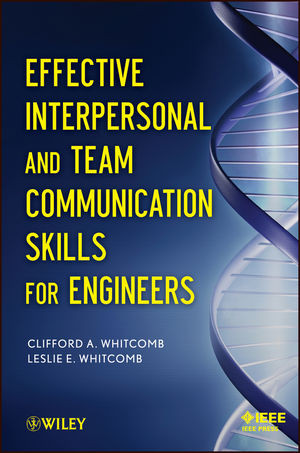

Most ebook files are in PDF format, so you can easily read them using various software such as Foxit Reader or directly on the Google Chrome browser.
Some ebook files are released by publishers in other formats such as .awz, .mobi, .epub, .fb2, etc. You may need to install specific software to read these formats on mobile/PC, such as Calibre.
Please read the tutorial at this link: https://ebookbell.com/faq
We offer FREE conversion to the popular formats you request; however, this may take some time. Therefore, right after payment, please email us, and we will try to provide the service as quickly as possible.
For some exceptional file formats or broken links (if any), please refrain from opening any disputes. Instead, email us first, and we will try to assist within a maximum of 6 hours.
EbookBell Team

4.1
40 reviewsPresents key principles of communication that support clear exchanges in a technical context and help engineers learn effective communication skills
Effective communication is a necessity for engineers. Even minor on-the-job misunderstandings can cost time, money, or worse. Yet even though recent studies show that improved communication makes for better engineers, the ability to speak clearly and listen carefully have historically been considered "soft skills" and are not typically or explicitly addressed in engineering programs.
Working from basic units called microskills, Effective Interpersonal and Team Communication Skills for Engineers shows readers, one step at a time, how to engage, listen, manage conflict, and influence others with highly constructive, repeatable communication exchanges.
This career-enhancing handbook:
Effective Interpersonal and Team Communication Skills for Engineers is a must-have guide for professionals and an important supplement for engineering programs at all levels.
Content: